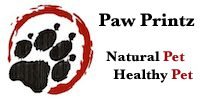Most dogs love food, and they’re especially attracted to what they see us eating. While sharing the occasional tidbit with your dog is fine, it’s important to be aware that some foods can be very dangerous to dogs. Take caution to make sure your dog never gets access to the foods below. Even if you don’t give him table scraps, your dog might eat something that’s hazardous to his health if he raids kitchen counters, cupboards or trash cans.
Alcohol – Beer, wine or foods containing alcohol – none of these are good for your dog. Alcohol has the same effect on a dog’s liver and brain that it has on humans, but it takes far less to do the damage.
Apple Seeds, Stonefruit Pips, – The casing of many fruit seeds/pips are toxic to a dog as they contain a natural chemical (amygdlin) that releases cyanide when digested. Be sure to core and seed apples before you feed them to your dog.
Avocado – The leaves, fruit, seeds and bark of avocados contain Persin, which can cause vomiting and diarrhea in dogs. Birds and rodents are especially sensitive to avocado poisoning.
Caffeine – Coffee, Tea etc – In large enough quantities Caffeine can be fatal for a dog. There is no antidote. Caffeine can also be found in cocoa, chocolate, colas and energy drinks. It’s also in some cold medicines and pain killers.
Cat food – Cat food contains proteins and fats that are targeted at the diet of a cat, not a dog. The protein and fat levels in cat food are too high for a dog, and not healthy.
Chocolate – The toxic agent in chocolate is theobromine. It’s in all kinds of chocolate, even white chocolate. The most dangerous kinds are dark chocolate, chocolate mulch, and unsweetened baking chocolate.
Cooked Bones and Fat Trimmings – Table scraps often contain meat fat and cooked bones. Both are dangerous for dogs. Fat trimmed from meat, both cooked and uncooked, can cause pancreatitis in dogs. Cooked bones can splinter and cause an obstruction or lacerations of your dog’s digestive system – always feed bones raw.
Corn on the cob- A sure way to get your dog’s intestine blocked. The corn is digested, but the cob gets lodged in the small intestine, and if it’s not removed surgically, can prove fatal.
Grapes and Raisins – Grapes and raisins have recently been associated with the development of kidney failure in dogs. At this time, the exact cause of the kidney failure isn’t clear, nor is it clear why some dogs can eat these fruits without harm, while others develop life-threatening problems after eating even a few grapes or raisins.
Just because it is good for you does not mean it is good for your pet
Macadamia Nuts – Although not usually fatal, Macadamia nuts may cause vomiting, weakness, depression, drunken gait, joint or muscle pain and joint swelling within 6 to 24 hours of consumption.
Milk and Other Dairy Products – Because pets do not possess significant amounts of lactase (the enzyme that breaks down lactose in milk), milk and other milk-based products can cause diarrhoea.
Mushrooms – Just as the wrong mushroom can be fatal to humans, the same applies to dogs. Don’t mess with them.
Onions and Chives – Whether dry, raw, cooked, or powdered, onions are not only poisonous to dogs, but even worse for cats. They contain disulfides and sulfoxides (thiosulphate), both of which can cause anemia and damage red blood cells.
Persimmons, Peaches, Plums etc – The seeds from persimmons can cause inflammation of the small intestine in dogs. If pips are swallowed they can also cause intestinal obstruction.
Potatos, Rhubarb and Tomato leaves contain oxalates, which can affect the digestive, nervous, and urinary systems.
Raw Eggs – There are two problems with giving your dog raw eggs. The first is the possibility of food poisoning from bacteria like Salmonella or E. coli. The second is that an enzyme in raw eggs interferes with the absorption of a particular B vitamin. Cooked is fine.
Raw Fish – Certain kinds of fish such as salmon or trout can contain a parasite that causes “fish disease”. If not treated, the disease can be fatal within two weeks. Thoroughly cooking the fish will kill the parasite and protect your dog.
Tobacco – Contains nicotine, which affects the digestive and nervous systems. Symptoms include a rapid heart beat, collapse, coma, and death. Keep your dog away from ashtrays and cigarette butts.
Xylitol – ingestion of xylitol can lead to a rapid and severe drop in blood sugar levels. Dogs may develop disorientation and seizures within 30 minutes, some dogs develop liver failure, which can be fatal.
Your Medicine – Reaction to a drug commonly prescribed for humans is the most common cause of poisoning in dogs. Ingredients such as acetaminophen or ibuprofen are common in pain relievers and cold medicine can be deadly for your dog.
If you share your home with a dog it can be hard not to want to share your snacks as well.

